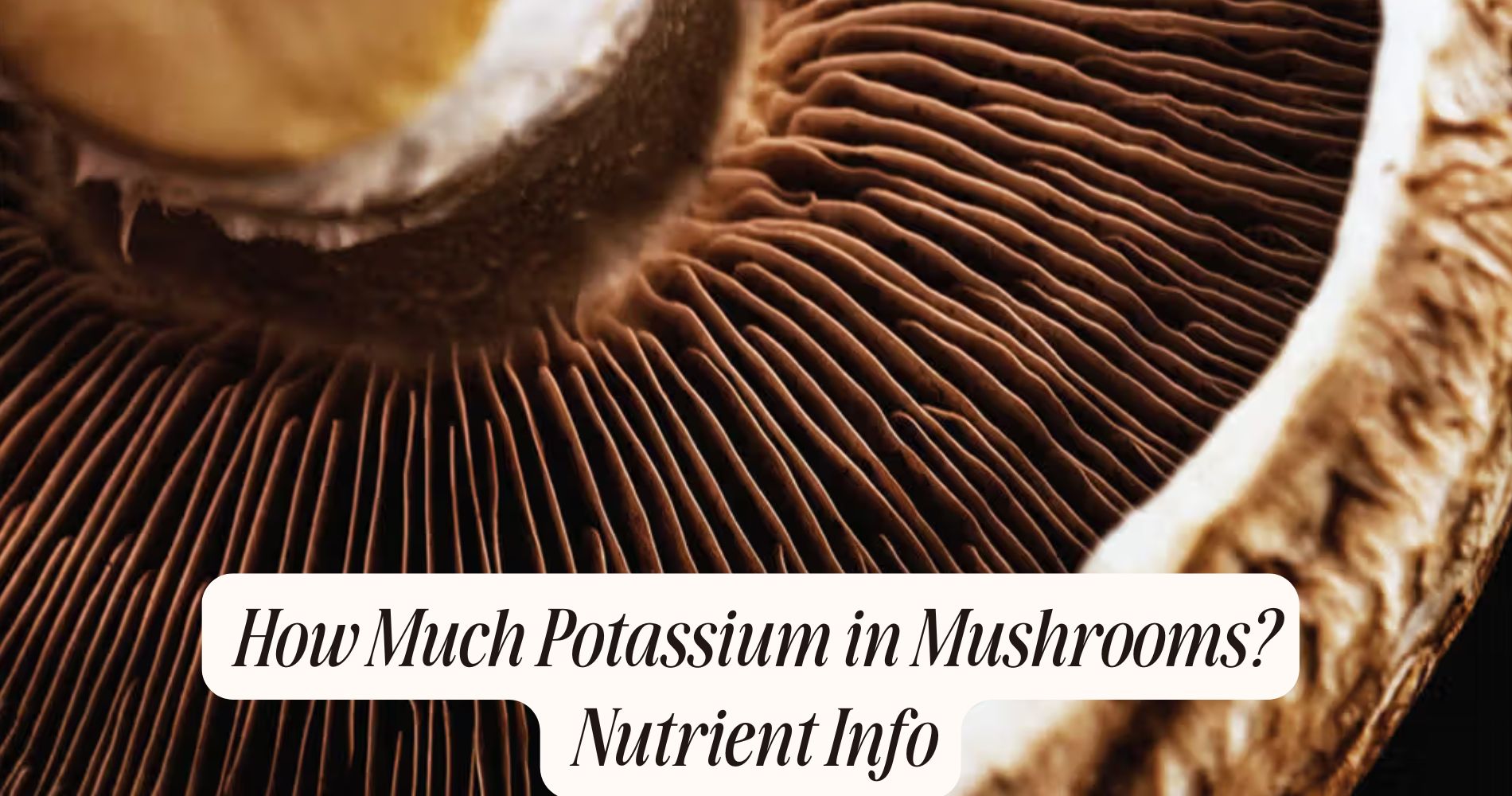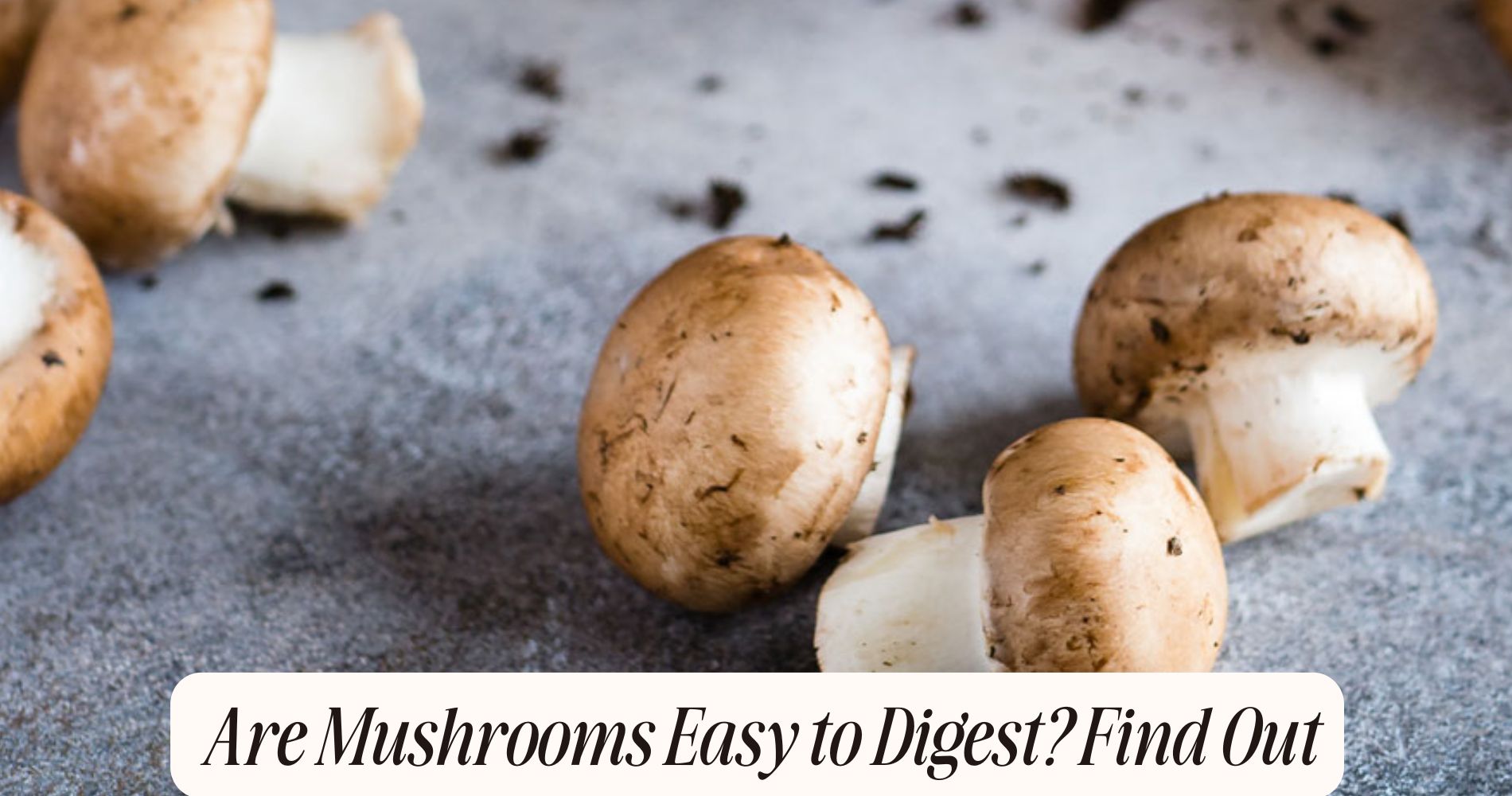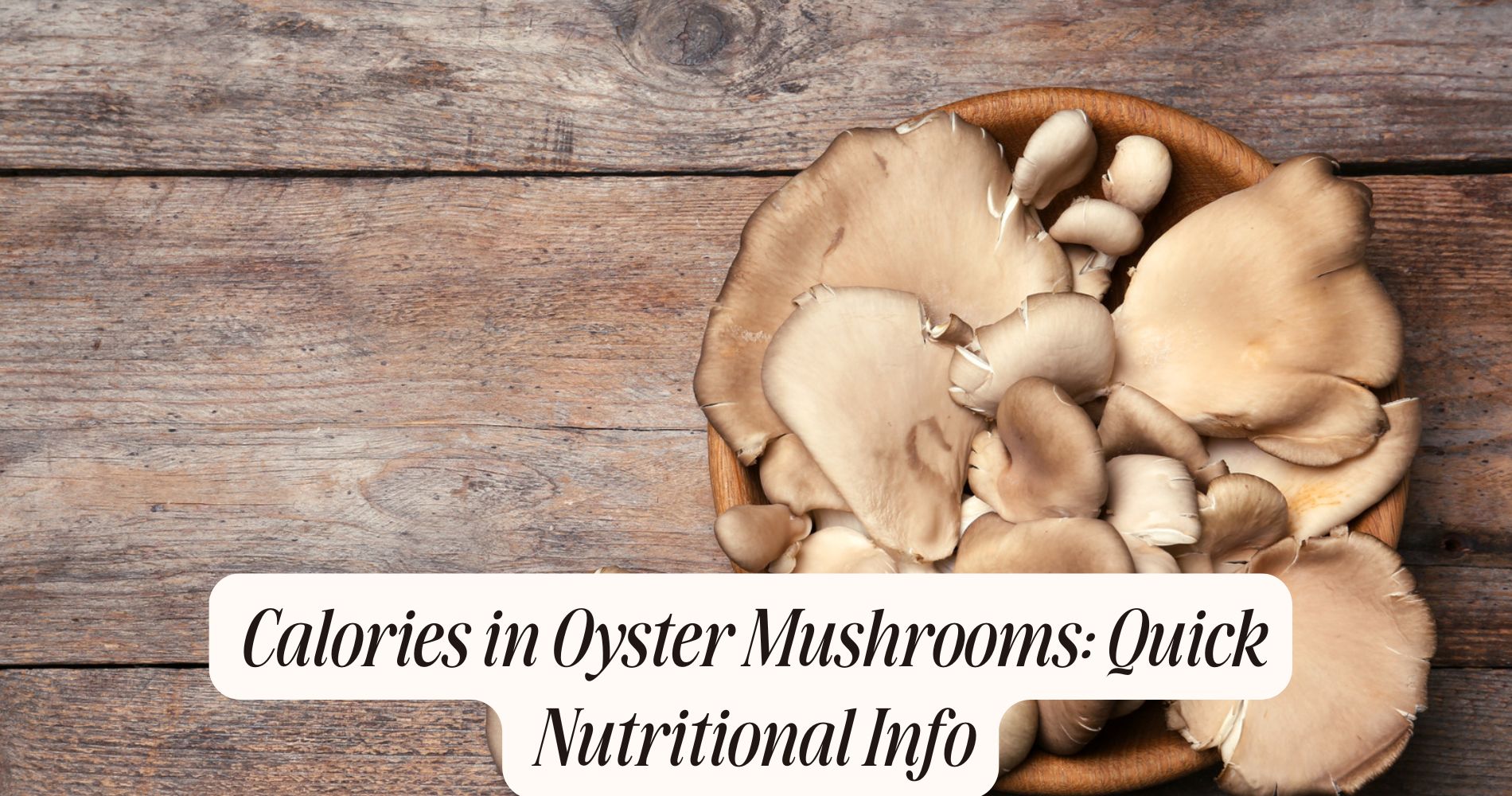
How Much Potassium in Mushrooms? Nutrient Info
How much potassium in mushrooms? Mushrooms are a tasty source of potassium, providing important health benefits. For instance, a cooked cup of shiitake mushrooms contains about 516 mg of potassium, while white button mushrooms offer around 428 mg. Portobello mushrooms have approximately 364 mg per cooked cup. Including mushrooms in your diet can help with fluid balance, muscle contractions, and heart health. They're low in calories and rich in antioxidants, making them a smart addition to meals. If you're curious about more ways to enjoy mushrooms and their nutritional perks, there's plenty more to explore that can enhance your cooking.
Importance of Potassium
Potassium plays an essential role in maintaining your overall health. It's a key mineral that helps regulate fluid balance, nerve signals, and muscle contractions. Adequate potassium intake can support cardiovascular health by lowering blood pressure and reducing the risk of stroke.
If you don't get enough potassium, you might experience potassium deficiency, which can lead to muscle cramps, weakness, and even heart arrhythmias.
You can find potassium in various potassium sources, including fruits, vegetables, legumes, and dairy products. Bananas, sweet potatoes, spinach, and avocados are particularly rich in this important nutrient. By incorporating these foods into your diet, you can help guarantee you're meeting your potassium needs.
A balanced diet is fundamental for preventing potassium deficiency, especially if you're physically active or have certain health conditions that increase your potassium needs.
If you're concerned about your potassium levels, consider consulting a healthcare professional who can provide guidance tailored to your specific situation. Maintaining adequate potassium levels is indispensable for your overall well-being, so make certain to include these potassium sources in your daily meals.
Potassium Content in Common Mushrooms
When exploring dietary sources of potassium, mushrooms often surprise many with their impressive nutrient profile. Various mushroom varieties, such as white button, shiitake, and portobello, offer significant amounts of this essential mineral, making them a valuable addition to your diet.

For instance, a cup of cooked white button mushrooms contains about 428 mg of potassium, while the same amount of cooked shiitake mushrooms provides around 516 mg. Portobello mushrooms are slightly lower, with roughly 364 mg per cup. These numbers show how different mushroom types can contribute to your daily potassium intake.
In a potassium comparison, you'll find that mushrooms rank favorably against other vegetables. For example, spinach offers about 839 mg per cup, but mushrooms still stand out for those looking to diversify their potassium sources.
Nutritional Profile of Mushrooms
Mushrooms offer a remarkable nutritional profile that goes beyond their potassium content. When you explore various mushroom varieties, you'll find they're low in calories yet packed with essential nutrients. For instance, a cup of cooked shiitake mushrooms contains about 81 calories, along with fiber and B vitamins.
In your nutrient comparison, mushrooms stand out for their high levels of antioxidants, such as ergothioneine and selenium, which help combat oxidative stress. Additionally, they're a good source of plant-based protein, providing around 3 grams per cup. The vitamin D content in certain varieties, like maitake and UV-exposed portobello, can be significant, supporting bone health and immune function.

Moreover, mushrooms are rich in minerals like copper, which plays a role in iron metabolism, and manganese, essential for bone formation. The diverse nutrient profiles of different mushroom varieties highlight their versatility as a dietary component.
Incorporating a range of mushrooms into your meals can enhance not only flavor but also your overall nutrient intake. So, whether you're sautéing, grilling, or adding them to soups, mushrooms can be a delightful addition to your plate.
Health Benefits of Potassium
Essential for various bodily functions, potassium plays an important role in maintaining overall health. This mineral helps regulate fluid balance, muscle contractions, and nerve signals, making sure your body operates smoothly. Adequate potassium intake is critical for heart health, as it helps lower blood pressure by counteracting the effects of sodium.
When you consume potassium-rich foods, like mushrooms, you're supporting healthy blood circulation and reducing the risk of stroke. A diet low in potassium can lead to potassium deficiency, which may result in symptoms such as muscle weakness, fatigue, and irregular heartbeats. By incorporating potassium sources into your meals, you can help prevent these issues.

In addition to mushrooms, other excellent potassium sources include bananas, spinach, and sweet potatoes. Aim for a balanced diet that includes various potassium-rich foods to guarantee you're getting the necessary amounts.
If you suspect you're at risk for potassium deficiency, consult with a healthcare professional for guidance. Prioritizing potassium can enhance your overall well-being and help you maintain a healthy lifestyle. Remember, a little attention to your potassium intake can go a long way in supporting your health.
Tips for Incorporating Mushrooms
Incorporating mushrooms into your diet can be both enjoyable and beneficial for your health. These versatile fungi can add depth and umami to a variety of dishes. Start by exploring different cooking techniques such as sautéing, grilling, or roasting. Sautéing mushrooms in a bit of olive oil enhances their flavor, while roasting can bring out their natural sweetness.

Consider flavor pairings to elevate your meals. Mushrooms pair wonderfully with garlic, thyme, and rosemary, creating a savory profile in soups and stews. If you're making pasta, try adding sautéed mushrooms for texture and taste. They also work well with proteins like chicken or beef, adding richness to your dishes.
For a quick and healthy snack, consider adding mushrooms to salads or wraps. You can even blend them into smoothies for an extra nutrient boost without compromising flavor.
Frequently Asked Questions
Can Potassium Levels in Mushrooms Vary by Species?
Yes, potassium levels in mushrooms can vary by species. Different mushroom varieties exhibit distinct potassium content, with some offering markedly higher amounts than others, making it essential to choose wisely for ideal nutritional benefits.
Are There Any Potassium-Rich Mushroom Recipes?
You can enjoy potassium-rich mushroom recipes by using varieties like portobello or shiitake. Incorporating these mushrooms into stir-fries or soups not only enhances flavor but also provides significant potassium benefits for your health.
How Does Cooking Affect Potassium Levels in Mushrooms?
Cooking methods like boiling can reduce potassium levels due to nutrient loss in water, while techniques like sautéing may better preserve nutrient retention. Opt for quick cooking to maintain more potassium in your mushrooms.
What Are the Symptoms of Potassium Deficiency?
If you're potassium deficient, you might experience muscle weakness, fatigue, and cramping. Causes of deficiency include inadequate diet and certain health conditions. Ignoring these symptoms can lead to serious health consequences, like arrhythmias or kidney issues.
Can I Rely Solely on Mushrooms for Potassium Intake?
Relying solely on mushrooms for potassium isn't advisable. While they offer some potassium, you need a variety of potassium sources, like fruits and vegetables, to meet your nutritional needs effectively and maintain overall health.
Conclusion
Incorporating mushrooms into your diet can boost your potassium intake while providing various health benefits. With different types offering varying amounts, you can easily find options that suit your taste. Remember, potassium plays an essential role in maintaining heart health and regulating blood pressure. By enjoying mushrooms regularly, you're not only enhancing your meals but also supporting your overall well-being. So, add these nutritious fungi to your plate and reap the rewards of their potassium content!




